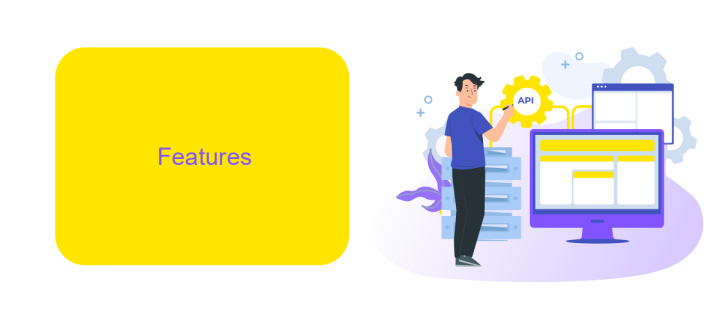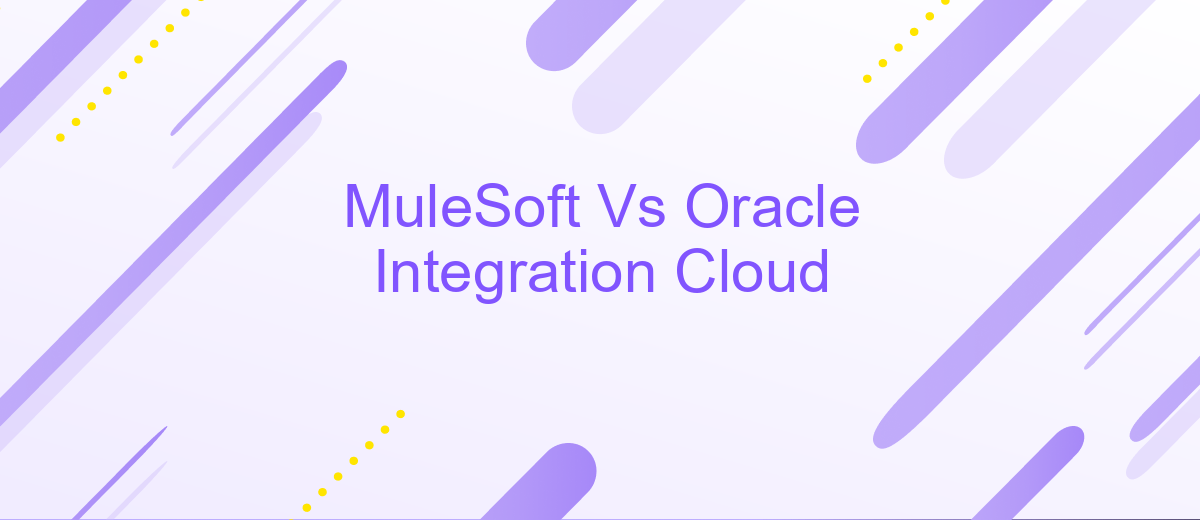MuleSoft Vs Oracle Integration Cloud
In today's rapidly evolving digital landscape, businesses require robust integration solutions to streamline operations and enhance productivity. MuleSoft and Oracle Integration Cloud are two leading platforms that offer powerful tools for connecting disparate systems and applications. This article delves into a comparative analysis of MuleSoft and Oracle Integration Cloud, examining their features, capabilities, and suitability for various business needs.
Introduction
In the rapidly evolving world of digital transformation, businesses are increasingly seeking robust integration solutions to streamline operations and enhance connectivity. Two prominent players in this arena are MuleSoft and Oracle Integration Cloud. Each offers a unique set of features and capabilities tailored to meet diverse integration needs.
- MuleSoft: Known for its powerful Anypoint Platform, MuleSoft provides comprehensive tools for API management, design, and analytics.
- Oracle Integration Cloud: This platform excels in pre-built integrations and seamless connectivity with Oracle applications, making it a strong contender for enterprises heavily invested in Oracle ecosystems.
Choosing between MuleSoft and Oracle Integration Cloud can be challenging, as both platforms offer significant advantages. For businesses looking for a more versatile and user-friendly integration solution, services like ApiX-Drive can also be considered. ApiX-Drive simplifies the integration process by enabling quick and easy connections between various applications, ensuring that businesses can focus on growth rather than technical complexities.
Features

MuleSoft offers a robust set of features designed to streamline integration processes. Its Anypoint Platform provides a unified solution for API management, design, and development, enabling seamless connectivity across various systems and applications. MuleSoft's DataWeave language simplifies data transformation, while its pre-built connectors and templates accelerate integration projects. Additionally, the platform's advanced monitoring and analytics tools ensure optimal performance and reliability.
Oracle Integration Cloud (OIC) also offers a comprehensive suite of features for integration. OIC's intuitive interface and pre-built adapters facilitate quick and easy connections between diverse applications. The platform supports real-time data synchronization and provides advanced mapping capabilities for complex data transformations. Moreover, OIC's embedded process automation and AI-driven insights enhance overall operational efficiency. For users looking for additional integration solutions, services like ApiX-Drive can complement these platforms by offering automated workflows and seamless data exchange across a wide range of applications.
Pricing and Licensing

When comparing the pricing and licensing models of MuleSoft and Oracle Integration Cloud, it's essential to understand the differences to make an informed decision. MuleSoft offers a subscription-based pricing model, which is generally tiered based on the number of transactions or APIs managed. This model allows for scalability and flexibility as your integration needs grow.
- MuleSoft: Subscription-based pricing, tiered by transaction/API volume.
- Oracle Integration Cloud: Subscription-based pricing, often bundled with other Oracle Cloud services.
- ApiX-Drive: Pay-as-you-go model, with pricing based on the number of integrations and data volume.
Oracle Integration Cloud, on the other hand, usually comes with a subscription-based pricing model as well, but it is often bundled with other Oracle Cloud services, making it a more comprehensive but potentially costlier option. For businesses looking for a more straightforward and cost-effective solution, ApiX-Drive offers a pay-as-you-go model that charges based on the number of integrations and data volume, providing a flexible and budget-friendly alternative.
Security and Reliability

When it comes to security and reliability, both MuleSoft and Oracle Integration Cloud offer robust solutions, ensuring data protection and seamless integration processes. MuleSoft provides a comprehensive set of security features, including data encryption, secure access, and compliance with industry standards such as GDPR and HIPAA. Additionally, MuleSoft's Anypoint Platform offers high availability and disaster recovery capabilities to ensure business continuity.
Oracle Integration Cloud also emphasizes security and reliability, offering end-to-end encryption, identity management, and compliance with global regulations. Its multi-layered security approach includes network security, data security, and application security, providing a secure environment for integration processes. Oracle's cloud infrastructure is designed for high availability and resilience, ensuring minimal downtime and reliable performance.
- Data encryption and secure access
- Compliance with industry standards (GDPR, HIPAA)
- High availability and disaster recovery
- End-to-end encryption and identity management
- Multi-layered security approach
For businesses looking to streamline their integration processes while maintaining high security and reliability standards, both MuleSoft and Oracle Integration Cloud are excellent choices. Additionally, services like ApiX-Drive can further enhance integration capabilities by providing easy-to-use tools for setting up and managing integrations, ensuring that security and reliability are not compromised.
Comparison Table
When comparing MuleSoft and Oracle Integration Cloud, it's essential to consider various factors such as ease of use, scalability, and integration capabilities. MuleSoft offers a robust platform with a wide range of connectors and a user-friendly interface, making it suitable for businesses of all sizes. It also provides extensive documentation and support, which can be beneficial for developers. Oracle Integration Cloud, on the other hand, excels in seamless integration with other Oracle products and services, offering a comprehensive suite for enterprises already invested in Oracle's ecosystem.
Both platforms have their strengths and weaknesses. MuleSoft's Anypoint Platform is known for its flexibility and API-led connectivity, which can be a significant advantage for organizations looking to build custom integrations. Oracle Integration Cloud, however, offers pre-built integrations and a more straightforward setup for Oracle applications, reducing the time and effort required for deployment. For those seeking an alternative solution for integration needs, services like ApiX-Drive can be considered, as they provide an easy-to-use interface and support for multiple applications, enabling quick and efficient integration without extensive technical knowledge.


FAQ
What are the primary differences between MuleSoft and Oracle Integration Cloud?
Which platform is better for integrating non-Oracle applications?
How do the pricing models for MuleSoft and Oracle Integration Cloud compare?
Is it possible to automate integrations without deep technical knowledge?
Which platform offers better support for real-time data processing?
Strive to take your business to the next level, achieve your goals faster and more efficiently? Apix-Drive is your reliable assistant for these tasks. An online service and application connector will help you automate key business processes and get rid of the routine. You and your employees will free up time for important core tasks. Try Apix-Drive features for free to see the effectiveness of the online connector for yourself.

